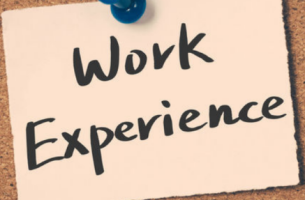
Kerry O'Neill
May 18, 2020
COVID-19 Webinar Summary: Preparing For Life After Lockdown
It has become clear that the coronavirus pandemic is far from a fleeting event. Life after lockdown will see a dramatic change in the way that businesses work. Lessons have been learned in every industry, particularly manufacturing, logistics, retail and healthcare. Keen to get a deeper insight into the activities of business leaders during this time, we invited a panel of Directors to join our own, Wayne Brophy, on our webinar: ‘Preparing For Life After Lockdown’. Our speakers were:
- Paula Eavis: HR Director of Bunzl UK & Ireland, Bunzl Healthcare & Bunzl Retail Supplies
- Keith Hallam: Senior Director of Supply Chain – EU at ASR Group (Tate & Lyle)
- Robert Berringer: Managing Director at Go Service Solutions/Global Service Group (GSG), a specialist third-party logistics provider
While it was no surprise that the COVID-19 experience differs vastly between sectors and business functions, a few themes dominated the discussion. Here, we detail the lessons to take forward, broken down into four core pillars.
Agility
The healthcare, food manufacturing and logistics industries have done a fantastic job of keeping our country running during the pandemic. Agility has been the key to success in these spaces, which has involved:
Meeting demand
Sales doubled for ASR Group in the first few weeks of lockdown. And whilst the uplift has slowed since then, Keith Hallam says it has continued at a higher-than-normal level. Their market has shifted slightly too – with people at home, their Tate & Lyle brand is selling more directly to consumers. To meet this demand in such a fluid environment, as well as deal with a rise in absenteeism, ASR Group have adapted. They’ve introduced flexible working hours, hired temporary workers, cancelled annual leave in the short term, and found ways to work with less inventory.
Introducing new measures
ASR Group also quickly implemented social distancing measures. They introduced one-way walkways to maintain production whilst keeping staff safe. For their office-based team, they supplied the necessary equipment (such as mobile phones, laptops and multiple screens for procurement roles) to work remotely. Meanwhile, logistics provider GSG faced the challenge of self-isolating staff and customers. Robert Berringer explained how they quickly overcame this by introducing contactless deliveries, whilst providing drivers with individual vehicles to avoid the risks that come with multiple employees sharing vehicles on different shifts.
Relocating resources
Robert also told of how GSG have made the best use of resources by shifting much of their admin team into logistics. This flexible approach is something Keith echoed; ASR Group have seen an increase in employees working across multiple sites regionally.
"It makes you think: well, we can work on less inventory, or I can work with a more multi-skilled workforce."Keith Hallam, ASR Group
This is something everyone seemed keen to continue as part of normal business life after lockdown: centralising their cost base as part of an overall rationalisation of resourcing
Rationalisation
Agility was key to the initial response to COVID-19. But to survive and come back stronger, business leaders have turned to forward planning and rationalisation. Our panel discussed:
Justifying product ranges
The pandemic has put an emphasis on volume over choice – particularly in relation to cleaning and healthcare products. Paula Eavis spoke of how narrowing product ranges has worked in favour of Bunzl during lockdown, and could provide a lesson moving forward when assessing the necessity of product variations.
Exercising caution with customers
This rationalisation doesn’t just extend to products. Paula also recommended a level of wariness when making decisions related to customers on credit. Cash flow will remain king throughout the difficult times ahead, and exercising a degree of caution is critical to giving your business the best shot at success.
Considering market diversification
Finally, lockdown has proven that it’s essential not to rely too heavily on any one sector. Bunzl’s healthcare, grocery, retail, and cleaning and hygiene clients are extremely busy. But it’s the opposite for hotels and restaurants.
“Our marketplace is reflective of the majority of the sectors that are represented in the UK. It’s a real game of two halves in terms of the impact.”Paula Eavis, Bunzl Healthcare & Bunzl Retail Supplies
Robert points out that diversification is needed. GSG have already done this by increasing their work with healthcare companies as they’ve had to reduce work with local council mobile libraries. In the long term, they want to take this cross-sector approach further.
Communication
As well as the logistical side of lockdown, there’s also been the human side to consider. Strong communication has been critical to maintaining momentum and the wellbeing of employees in recent months. For each of our panel’s businesses, this has involved:
Providing water-cooler moments
To ensure that not every conversation is about work, general office chatter needs to be brought online too – which is exactly what ASR Group have been doing with their regular team calls and virtual activities. Paula pointed out that there really is no such thing as too much communication. You need to always be available. It’s important to regularly check in with employees to see how they’re doing, and help to retain a sense of striving towards a common purpose.
Encouraging feedback
Paula noted that every individual has dealt with lockdown differently, and that assumptions couldn’t be made about employees’ needs and wellbeing. So they sent out a survey to their team, asking how they felt about the present situation and the support given in their roles. Similarly, GSG realised that any plans made would be futile without input from the people on the ground. After running their initial lockdown measures past their drivers, they were presented with practical questions they would never have thought of – like where to use the toilet during jobs now that hospitality businesses are closed.
Having honest conversations
Communication doesn’t just extend to your staff either. Whilst times may be tough, customers appreciate you keeping them in the know. Having experienced cost increases as a result of lockdown measures, Robert highlighted the importance of having honest conversations about the commercial reality in the medium to long term.
Engagement
Ultimately, communication is the first step to engagement. But it isn’t enough to simply talk about the challenges. Employees need to feel supported so that you can both figure out how best to move forward. The business leaders advise:
Focusing on mental health
It goes without saying that it’s crucial to implement actions for employees’ mental health during this period. ASR Group have introduced yoga and fitness sessions, for example, as well as team quizzes and dedicated reflection time. Likewise, Robert singled out how one of their customers, Amazon, has gone above and beyond to support employees in hardship.
Acknowledging star workers
Paula highlighted one silver lining of lockdown: that certain team members have been given the chance to really stand out by doing everything possible to help the business. She explained that these ‘doers’ are your best resources, and should be celebrated as such. Paula suggests that, once life after lockdown begins, we actively use skill sets to their full advantage. It’s incredibly important, and that’s why Bunzl are putting the plans in place to do just that.
Adapting to the future workforce
But it’s not just the individual that should be recognised. Paula noted that the remote-working experience has shown that employers can trust 98.9% of staff to get the job done. This deserves a level of trust and respect that should be extended post-lockdown when it comes to working practices. You can’t expect the way in which employees work to be the same after COVID-19. The standard 9 to 5 is unlikely to return as the norm – and employers that accommodate more flexible working will be rewarded with a much stronger value proposition.
The future: Preparing for life after lockdown
So, what does the future look like? While it’s still difficult to say for sure, there were a few certainties amongst our experts:
Implementing post-lockdown measures
Keith anticipates that we will need to ensure social distancing in the workplace for the foreseeable future. This will involve maximising the available space of your premises. It will also include increasing technology usage, and potentially staggering breaks and shifts for industries like hospitality, manufacturing and warehousing.
Moving away from specialisms
Our experts made it clear that businesses with multi-skilled workers tend to have greater levels of success during a crisis. Those with only site- or department-specific workers, on the other hand, often face stumbling blocks. Keith predicts that businesses will start to build up a workforce with many strings to its bow. To do this effectively, assessing skill sets will be a crucial aspect of business life after lockdown.
Seeing the opportunity
Opportunities can be found in the COVID-19 climate, and in its aftermath too. Paula expects that PPE requirements will be here to stay in some form, as Bunzl have made new healthcare customer contacts and revived relationships with dormant customers. GSG see opportunity in a different sense:
“For me, the opportunity is to enable scalability by getting customers (not in competing sectors, but different sectors) working together – and making our business a platform to enable them to do that.”Robert Berringer, Global Service Group
These are the thoughts and experiences from just three business leaders. We’re interested in hearing your views too.
Please take a minute to complete our survey here.
Your input will feed into our whitepaper, designed to help industry businesses prepare for life after lockdown. And, as a reward for responding to the survey, you’ll receive a preview copy prior to publication.
Lastly, don’t forget to follow us on LinkedIn to be the first to find out about further webinars! You’ll have the opportunity to ask questions to our next panel of experts.


